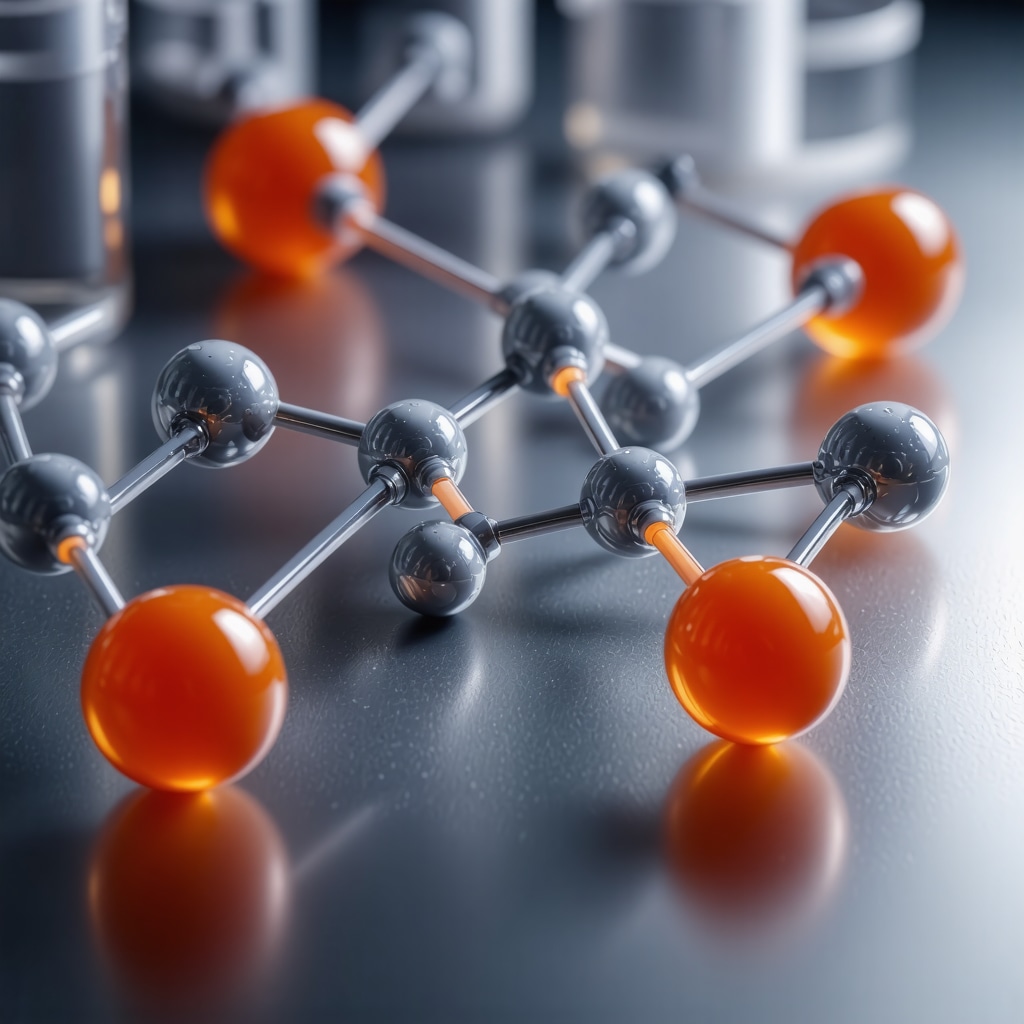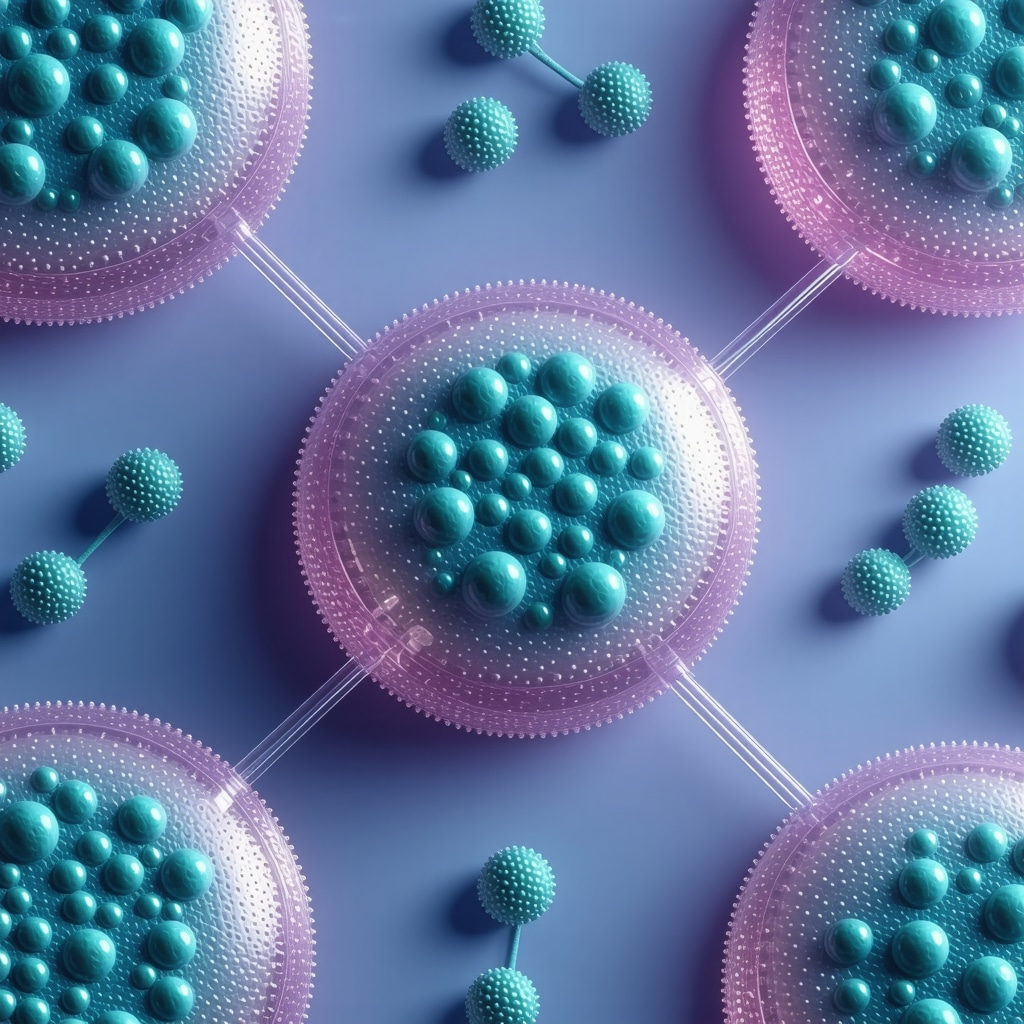Revolutionizing Fabric Care: The Intersection of Plant-Based Solutions and Eco-Safe Stain Treatments in Tampa, FL
In an era where environmental consciousness and advanced fabric care converge, Tampa, FL stands at the forefront of implementing innovative, plant-derived stain removal techniques that prioritize eco-safety without compromising efficacy. The integration of botanical solvents and natural enzymes into professional cleaning protocols exemplifies a significant paradigm shift in sustainable garment maintenance, aligning with the principles outlined in recent environmental studies and industry white papers (source).
Understanding the Complexity of Plant-Based Stain Removal Technologies
Traditional stain removal methods often rely on aggressive chemical solvents that pose health risks and environmental hazards. Conversely, plant-based solutions leverage compounds such as citrus terpenes, coconut-derived surfactants, and natural enzymes that break down stubborn stains while maintaining fabric integrity. These solutions are especially effective for organic stains like wine, coffee, and grease, which require precise enzymatic action that synthetic chemicals sometimes fail to achieve without residual toxicity.
Advanced Applications: From Lab to Laundry in Tampa’s Eco-Friendly Dry Cleaners
Leading Tampa eco-dry cleaners employ proprietary plant-derived solvents that demonstrate superior biodegradability and low VOC emissions. Their application involves a meticulous process where enzyme-based formulations target specific stain molecules, resulting in a cleaner, safer garment and a healthier environment. These methods also significantly reduce water and energy consumption, contributing to Tampa’s sustainability goals (sustainable garment care).
What Are the Challenges in Transitioning to Plant-Based Stain Treatments?
How Can Industry Stakeholders Overcome Limitations of Natural Enzymes for Deep-Set Stains?
Despite their advantages, plant-based stain removers face challenges such as enzyme stability, shelf life, and cost competitiveness. Ongoing research aims to enhance enzyme resilience and develop formulations with extended efficacy. Industry experts advocate for collaborative efforts between formulators, environmental scientists, and local Tampa businesses to refine these technologies, ensuring they meet both safety standards and economic viability.
Moreover, consumer education remains crucial. Informing Tampa residents about the benefits of eco-friendly stain removal supports demand for greener alternatives, fostering broader adoption and industry-wide transformation.
Explore Further: Embracing Green Fabric Care in Tampa
To deepen your understanding of eco-conscious garment maintenance, explore plant-derived cleaning solvents and learn how these advancements are reshaping Tampa’s dry cleaning landscape. We invite industry professionals and eco-conscious consumers alike to contribute insights and share best practices, advancing the movement toward sustainable fabric care.
Harnessing the Power of Natural Enzymes: A New Era in Fabric Care
As Tampa continues to lead in sustainable garment care, the focus shifts toward harnessing the full potential of natural enzymes in stain removal. These biological catalysts are tailored to target specific stain molecules, such as proteins, fats, and carbohydrates, enabling a more precise and eco-friendly cleaning process. Unlike synthetic chemicals, plant-based enzymes are biodegradable, non-toxic, and gentle on delicate fabrics, making them an ideal choice for eco-conscious consumers seeking effective stain removal without environmental compromise.
Can Industry Innovation Bridge the Gap Between Efficacy and Affordability?
This question underscores the ongoing challenge faced by Tampa’s eco-dry cleaners: balancing advanced technology with cost-effectiveness. Researchers and formulators are exploring novel extraction methods and enzyme stabilization techniques to extend shelf life and reduce production costs. For example, collaborations between local Tampa green dry cleaners and academic institutions are fostering innovations such as enzyme immobilization, which enhances durability and reduces waste. These efforts aim to make high-performance, plant-based stain removers accessible to a broader customer base, aligning with the increasing demand for sustainable and affordable laundry solutions (non-toxic dry cleaners).
How Can Tampa’s Eco Dry Cleaners Leverage Consumer Education to Accelerate Adoption?
Educating residents about the benefits of plant-based stain removal is crucial for fostering industry-wide change. Tampa’s eco-friendly dry cleaners can utilize digital platforms, community workshops, and partnerships with local environmental organizations to highlight the health, environmental, and fabric preservation benefits of natural enzymatic solutions. By demystifying these advanced techniques, businesses can build trust and encourage consumers to choose greener options, ultimately accelerating the shift toward sustainable garment care.
For more insights into how eco-friendly cleaning solutions are transforming garments and lifestyles, explore plant-derived cleaning solvents and their role in Tampa’s green dry cleaning revolution.
The Crucial Role of Enzyme Engineering in Next-Generation Fabric Care Solutions
As Tampa’s eco-conscious laundry industry evolves, the focus extends beyond basic enzymatic activity to sophisticated enzyme engineering. Researchers are now customizing enzymes at the molecular level to enhance stability, specificity, and efficiency under diverse cleaning conditions. For instance, protein engineering techniques such as site-directed mutagenesis allow scientists to modify natural enzymes, improving their resistance to temperature fluctuations and pH variations common in practical applications (ASM Journals).
How does enzyme immobilization revolutionize eco-friendly stain removal?
Enzyme immobilization involves attaching enzymes to solid supports, which enhances their reusability, stability, and ease of separation from cleaning solutions. This technique reduces waste and lowers costs by enabling multiple uses of the same enzyme batch. In Tampa’s green dry cleaning facilities, immobilized enzymes are proving pivotal in tackling persistent stains such as proteinaceous or lipid-based residues, maintaining high efficacy over extended periods. Advanced immobilization methods like encapsulation in nanocarriers or covalent bonding ensure enzymes retain activity even after multiple cycles, driving industry-wide sustainability.
Emerging Trends: Synthetic Biology and Custom Enzymatic Formulations for Eco-Detergents
Breakthroughs in synthetic biology are opening avenues for designing bespoke enzymes tailored to specific stain types and fabric compositions. By harnessing gene editing tools like CRISPR-Cas9, scientists can develop enzyme variants with enhanced catalytic properties and environmental resilience. These innovations are being integrated into Tampa’s eco-friendly formulations, offering hyper-targeted stain removal with minimal ecological footprint. Moreover, such tailored enzymes can be combined synergistically, providing a comprehensive cleaning system that adapts dynamically to different laundering scenarios.
What are the regulatory considerations for deploying genetically engineered enzymes in commercial textile cleaning?
Deploying genetically engineered enzymes involves navigating complex regulatory landscapes to ensure safety and environmental compliance. Regulatory agencies such as the EPA in the United States require thorough risk assessments, including allergenicity, toxicity, and gene transfer potential. Tampa’s industry leaders proactively collaborate with regulatory bodies to establish safety standards, often conducting extensive field testing and environmental impact studies before commercial rollout. This transparency fosters consumer trust and supports sustainable innovation.
Interested in exploring how cutting-edge enzyme technology can redefine fabric care? Connect with local Tampa research institutions or industry experts to stay ahead in sustainable cleaning solutions. Embracing these advanced biotechnologies not only elevates your eco-friendly practices but also positions your business as a leader in sustainable innovation.

Advancing Enzymatic Engineering: Pioneering Custom Solutions for Sustainable Textile Maintenance
The frontier of eco-conscious fabric care in Tampa is now exploring the potential of advanced enzyme engineering techniques, including directed evolution and protein scaffolding, to craft highly specialized biocatalysts. These innovations aim to optimize catalytic efficiency under diverse laundering conditions, such as variable pH levels and temperatures, thus enhancing the practicality of plant-based stain removers in commercial applications. Industry collaborations with biotech startups and academic research centers are accelerating the development of these bespoke enzymes, promising a new era of precision cleaning that aligns with environmental sustainability goals.
What Role Does Synthetic Biology Play in Custom-Designed Eco-Friendly Detergents?
Synthetic biology’s integration into fabric care allows for the design of enzymes with unprecedented specificity and resilience, tailored to target stubborn stains like tannins, proteins, or fats. By utilizing gene editing tools such as CRISPR-Cas9, scientists are developing microbial strains capable of producing these engineered enzymes at scale. These tailored biocatalysts not only enhance cleaning efficacy but also reduce the ecological footprint of detergent production, fostering a circular economy within Tampa’s sustainable textile industry. For an in-depth understanding, consult the recent review in ASM Journals on enzyme innovation in biotechnological applications.
Can Enzyme Immobilization Techniques Revolutionize Reusability and Cost-Effectiveness?
Enzyme immobilization, involving methods such as encapsulation, covalent attachment, or nanostructured supports, is revolutionizing eco-friendly stain removal by significantly enhancing enzyme stability and reusability. This approach reduces waste, lowers operational costs, and ensures consistent performance across multiple cleaning cycles. Tampa’s green dry cleaners are adopting immobilized enzyme systems to effectively combat persistent organic stains, fostering sustainability and economic viability. Advanced immobilization strategies, including the use of nanocarriers, are under active research to maximize enzyme activity retention and scalability.
How Are Regulatory Frameworks Evolving to Accommodate Genetically Modified Enzymes in Commercial Use?
As Tampa pioneers the integration of genetically engineered enzymes, regulatory agencies such as the EPA are refining frameworks to ensure safety, environmental protection, and consumer transparency. Rigorous risk assessments, including allergenicity and gene transfer potential evaluations, are mandatory before commercial deployment. Industry stakeholders are engaging in proactive dialogues with regulators and conducting comprehensive environmental impact studies to establish safety benchmarks. This collaborative approach is crucial for fostering public trust and enabling responsible innovation in sustainable textile care.
Explore further how biotech advances are transforming fabric care by connecting with local research initiatives and industry consortia dedicated to sustainable enzymatic solutions.

Expert Insights & Advanced Considerations
Innovative enzyme engineering techniques are revolutionizing plant-based stain removers, enabling tailored solutions for diverse fabric types and stain complexities, which enhances efficacy while maintaining eco-safety.
This approach leverages directed evolution and protein scaffolding to produce highly specific biocatalysts, addressing current limitations such as enzyme stability and shelf life, thus driving sustainable innovations in Tampa’s eco-dry cleaning industry.
Synthetic biology plays a pivotal role in the development of next-generation eco-detergents, allowing for the custom design of enzymes capable of targeting stubborn stains with minimal environmental impact, and reducing ecological footprints in commercial fabric care.
Gene editing tools like CRISPR-Cas9 enable the creation of microbial strains that produce these specialized enzymes at scale, fostering a circular economy within Tampa’s sustainable textile maintenance sector.
Enzyme immobilization techniques, including encapsulation and nanocarrier attachment, significantly enhance reusability and stability of plant-based enzymes, making eco-friendly stain removal more cost-effective and scalable for industry-wide adoption.
Advanced immobilization supports reduce waste and operational costs, enabling persistent efficacy over multiple cleaning cycles, which aligns with Tampa’s green initiatives and sustainability goals.
Curated Expert Resources
- ASM Journals on Enzyme Engineering: Offers cutting-edge research on molecular modifications and stability enhancements in enzymatic solutions, vital for industrial application in eco-friendly fabric care.
- ScienceDirect Articles on Synthetic Biology: Provides comprehensive insights into gene editing and microbial manufacturing processes that underpin bespoke enzyme development for sustainable cleaning products.
- EPA Regulatory Frameworks for GM Enzymes: Details the evolving safety standards and risk assessments necessary for deploying genetically modified enzymes in commercial settings, ensuring compliance and public trust.
Final Expert Perspective
The integration of advanced enzyme engineering and synthetic biology into plant-based stain removal solutions marks a transformative phase for Tampa’s eco-friendly fabric care. These innovations not only elevate efficacy and durability but also reinforce the industry’s commitment to environmental sustainability. Embracing these technologies requires continuous collaboration between scientists, industry leaders, and regulators, fostering a future where high-performance, eco-safe garment maintenance becomes standard. To deepen your understanding and contribute to this movement, explore plant-derived cleaning solvents and stay informed on emerging trends in sustainable fabric care. Your proactive engagement will help shape the next frontier of eco-friendly textile maintenance.


This article really highlights how Tampa is becoming a leader in eco-friendly fabric care, especially with the focus on plant-based enzymes and innovative immobilization techniques. From personal experience working in the green cleaning industry, I’ve seen how enzyme immobilization not only reduces waste but also improves the cost-effectiveness of treatments over time. It’s impressive how these scientific advancements can translate into real-world benefits like reduced water and energy use. I’m particularly interested in how local dry cleaners might further educate consumers about these technologies—there’s often a knowledge gap that hampers wider adoption.
In your opinion, what are the most effective ways Tampa’s eco-dry cleaners can communicate the benefits and safety of genetically engineered enzymes to a broader audience? This could really accelerate trust and industry-wide shift towards sustainable practices.
Reading this post really sheds light on how Tampa’s eco-friendly fabric care industry is pushing the boundaries with plant-based solutions. I’ve worked with similar biodegradable enzymes in my line of work, and I agree that stability and shelf life remain challenges. What’s exciting, though, is how ongoing research into enzyme immobilization and synthetic biology could lead to more resilient products that are also cost-effective. From my perspective, consumer education plays a crucial role; many people hesitate to switch to plant-based cleaners simply because they’re unfamiliar with their safety and efficacy. I’ve found that community workshops, transparent lab insights, and sharing real success stories can build trust. How do others think Tampa’s dry cleaners can better demystify the science behind these technologies to everyday consumers? Perhaps a dedicated platform explaining the safety of genetically engineered enzymes could be a game-changer.